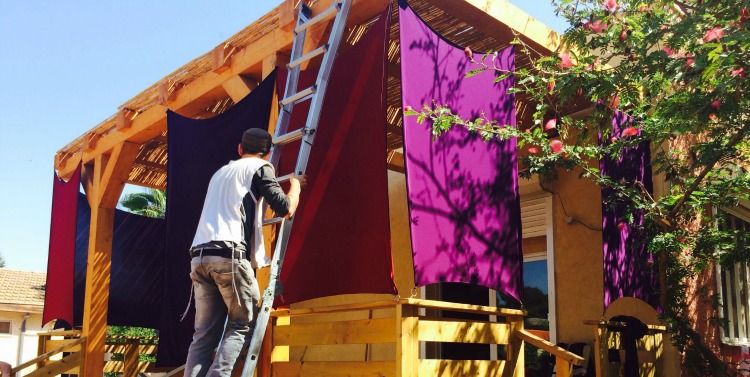Making It Last
The Fellowship | October 3, 2017

“Say to the Israelites: ‘On the fifteenth day of the seventh month the LORD’s Festival of Tabernacles begins, and it lasts for seven days.'” — Leviticus 23:34
A note to our readers: This week marks the celebration of Sukkot, one of the most joyous celebrations on the Jewish calendar. Throughout this week, our reflections will be tied to this biblically mandated holiday.
This week we will celebrate the Festival of Tabernacles. However, to fully understand the meaning of this holiday we have to look at where it really begins — at the conclusion of Yom Kippur, five days earlier. Moments after Jews have broken their 25-hour fast, you will hear the sound of hammering all over Israel as people begin building the little huts known as sukkot. Why can’t the building wait until the next day after we have had time to digest our meal?
Let’s examine how Yom Kippur ends. As the Day of Atonement comes to a close, the congregation recites seven times aloud: “The LORD — he is God!” These few words sum up the entire holiday season. The goal is to know beyond a shadow of a doubt that God is our Lord who is present in our lives and whom we must serve. After repeating this message one last time, we sound the final shofar blast. It’s a dramatic and moving end to the most holy days of the year.
The words that we recite seven times may sound familiar. They are borrowed from 1 Kings just after the prophet Elijah defeated the false prophets on Mount Carmel. After witnessing Elijah’s amazing demonstration that his was the one true God, the people bowed on their faces and proclaimed, “The LORD — he is God!” (1 Kings 18:39). It was crystal clear to them. The people were once again aligned with the Lord Almighty.
But the very next day the nation returned to their wicked ways. Elijah the prophet was forced to run for his life because the people once again became loyal to the wicked King Ahab and his idolatrous ways. The entire kingdom was out to kill Elijah. Their momentary clarity gone and their fleeting inspiration faded, the people were as lost and misguided as before.
The High Holy Days are inspirational and educational. We end on a spiritual high. It is no mistake that we conclude with the same words proclaimed by the people of Elijah’s time. We share their clarity, but we want to avoid their mistake. As soon as the holiday ends, we put our feelings into action. We lift and hammer and create something that will remind us of God. This is the gift of Sukkot — we take our feelings and transform them into something real.
The Jewish sages teach that our good intentions are strengthened with action. Inspiration is nice, but true spiritual growth requires action. Inspiration gets us going, but action makes it last.
